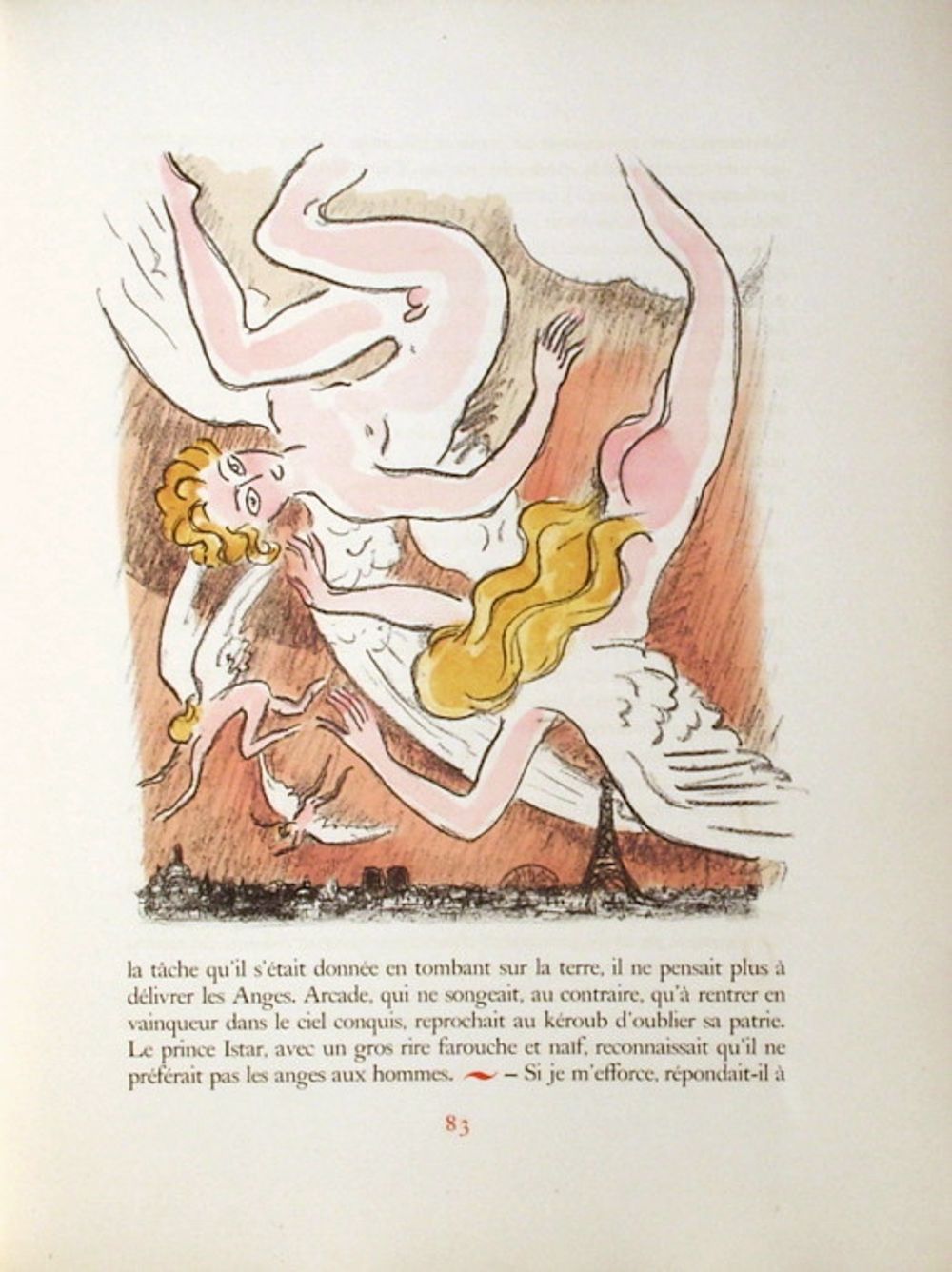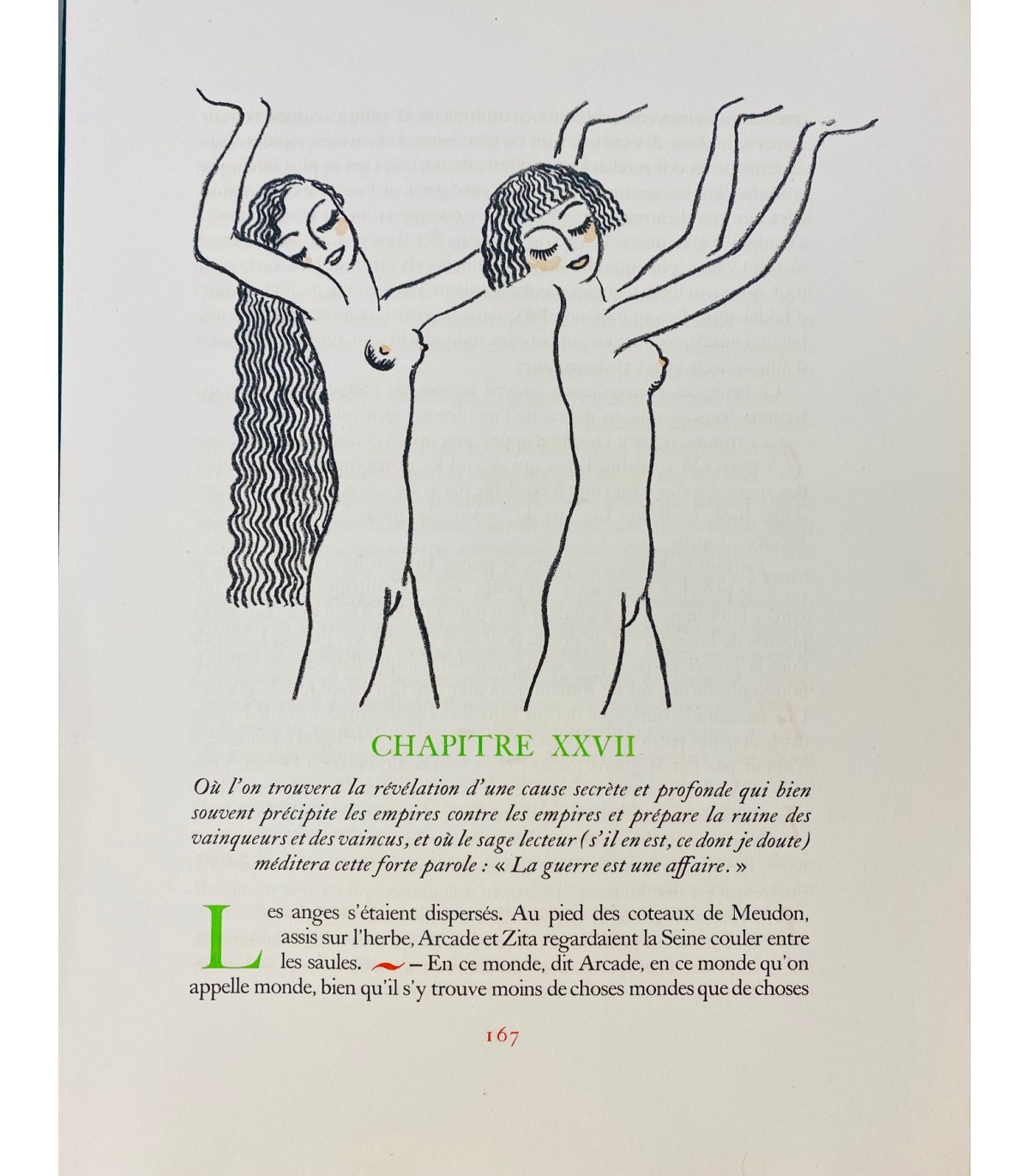Still, also revolutionary Angel couldn't be off the list, If talking about a book made me choose it because of the cover. The cover isn't too enough but makes me extremely curious. The layout is tight. The author won the Nobel Prize in 1921, and when I looked at the preface. That was enough to make me feel secure about the content of the book that I brought back.
The jotting style of Anatole France in The Rebellious Angel is still deeply told by the ultramodernperiod. However, one of The Three buddies( Alexandre Dumas I), will see the heritage in the style of Anatole France, If anyone has ever read and loved the books Red and Black( Stendhal). With a subtle lampoon and a sarcastic pen veritably French, Anatole France has created a story about angels in the mortal world. He cleverly integrated the timeline of the thed'Esparvieu family, making the content of the work literal. From the books, and the volume to the active conservation of the librarian Mariette, it's no magnification to call the thed'Esparvieu family library the largest library in Europe. In that environment, the guardian angel Hall, frustrated with the youthful man he defended, went to the library to read books and had a rebellious study.
Anatole France told two stories that took place at the same time and also suddenly the plot turned, causing the two stories to find common ground and from there combine into one body until the end. The lives of ordinary people take place at the same time as angels come together, gather, and plan their heavenly revolution. Meanwhile, in mortal society under the Third Republic, one can see the ladies and gentlemen of the upper class, who appear to be staid on the outside, but behind their tails. Cheating, laying The author's pen also doesn't forget the British maids, the old painter, the librarian, the picture-dealing girl, the model, the songster, and the police. who has contributed to perfecting the picture of society? French society in the early twentieth century. One of the two main characters, Maurice, is a representative of the French aristocratic youth, not too enthusiastic about anything, preferring women and preferring play to literacy. His family possessed a library full of precious books, but Maurice did not watch in the fewest, and if he had not gotten so caught up in play and erogenous adventures, his guardian angel Hall wouldn't have been so disheartened. Find books to read. Through the angel Hall, the author has expressed deep dubieties is the knowledge we formerly know correct? Will faith ever contradict the scientific knowledge of humanity? Does art always recognize the good, the good, and the beautiful while it also occasionally shows the vengeance of the superior? etc. compendiums can also fluently see that the characters in the story have two distinct religious inclinations either they veritably explosively believe in them or they fully dismiss them.
In writing about angels, Anatole France adapts them to mortal life, and so they too come worldly. They also started fighting, being jealous, pouting, coveting other people's women
, betraying their musketeers rather than their former innocence and chastity. Hall gave up being a guardian angel and came a veritably offensive person. The author gives a lot of love to the Greek gods and at the same time satirizes the asininity of the Archangel Michel. He has cleverly interwoven the development history of mortal civilization with the deification of gods and demons, generally Dionysos, the god of wine, another personification of the angel Beelzebub on earth. He also gave his opinion on the meaninglessness of war, and easily expressed his skeptical gospel at the end of the work nothing is endless, endless, new knowledge replaces old knowledge, and indeed the creator can be overthrown, taking the place of Satan. And also it seems that no matter who the leadership class has, they will ultimately forget the original purpose when they're displeased enough to replace the old with their own new ideas. Curiosity, curiosity, and great love will be substituted for the satisfaction of thanksgiving praise and “ feeling asleep to mercy. ” So, whether angels or mortals, no one can escape these changes.
The story ends with Satan's dream, which is also a commodity that makes me a bit regretful. I allowed
the careful medication of the angels leaving the Heavenly Yard would make for a commodity bigger than that, or I anticipated a different ending for the revolutionary Angel. In the end, they mutinied, gave up being guardian angels, and indeed led to the death of a mortal, but they didn't bring about the revolution as they planned. Satan, the generally known symbol of lecherous temptation, has a different appearance under the author's pen. After all, according to Satan, they will destroy their dictator if they destroy the" ignorance and fear" in the existent's own spirit, and therefore simply conquer the spirit. God is formerly a palm.



